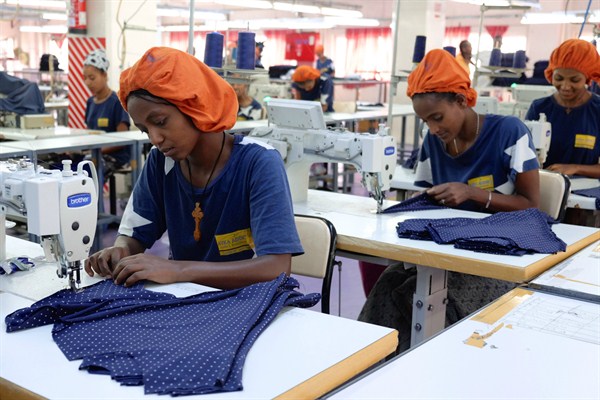ALEM GENA, Ethiopia—As she shuffles about the factory floor, watching over the machines that weave spools of thread into fabric, Asrat Yimam personifies the future of the Ethiopian workforce.
A 27-year-old mother of one from the nearby capital, Addis Ababa, Yimam has spent the past six years toiling for Ayka-Addis, a Turkish-owned textile and garment factory and the largest firm in Ethiopia’s emerging apparel industry. Six days a week, for 1,500 birr ($68) a month after taxes, she rises early for her eight-hour shift, dons her spotted blue and white Ayka uniform, and spends her day churning out cotton for t-shirts, pajamas and bed sheets bound for Europe. As a relatively senior employee, she’s better paid than many of Ayka’s 6,000 Ethiopian staff. With her 10th-grade education, she admits it would be hard to find better. Yet Yimam and her husband still struggle.
“There aren’t many companies that pay more than Ayka,” she says over the whirl of more than 200 knitting machines. “But it’s still barely enough.”

